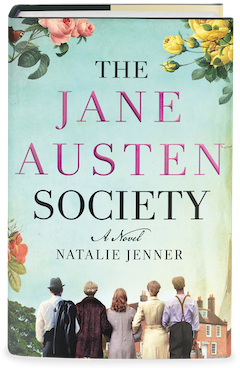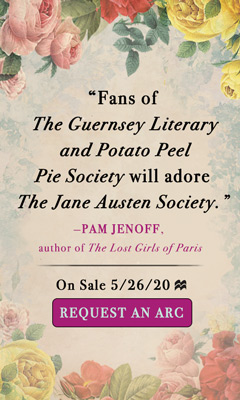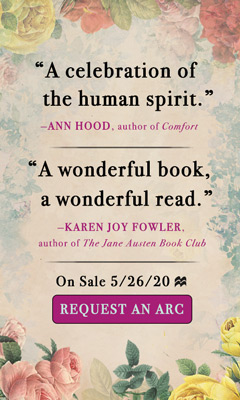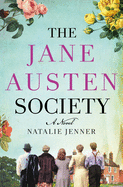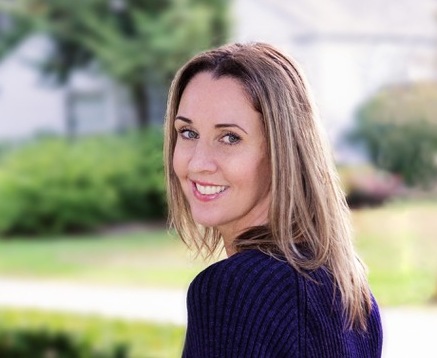The Jane Austen Society
by Natalie Jenner
In The Jane Austen Society, a fictionalized account of the Society's founding, Canadian debut novelist Natalie Jenner draws on the broad, timeless appeal of Jane Austen for a charming story of an unlikely collection of readers who band together to save what remains of Austen's home. Along the way, their shared passion for the author of Pride and Prejudice brings hope, healing and surprising connections into each of their lives in ways that will gratify bibliophiles in general and Janeites in particular.
Jenner begins in Chawton, Hampshire, in 1932, when farm laborer Adam Berwick meets an American girl "so beyond him in her beauty as to be almost otherworldly." She has come to Chawton to see "the little steward's cottage where the Gosport and Winchester roads intersected, and where Jane Austen had finally found a home for her writing after years of dependency." The house is still owned by the Knights, the family that adopted Jane's brother as their heir. A fan of H. Rider Haggard's adventure stories, Adam nevertheless responds to her heartfelt insistence that he read Austen's novels. Adam still carries the pain of losing his chance at a future of study after his elder brothers died in World War I, his father died of Spanish flu, and Adam and his mother had to sell the family land to pay off their debts. Adam envies the "contented state" he observes in the American girl and decides that if reading Austen can give him the key to peace, read Austen he will.
More than a decade later, his discovery of a Georgian-era toy in a rubbish heap near the steward's cottage leads Adam to an epiphany: though visitors occasionally come to see Austen's former home, no one has acted to preserve the site and her legacy for future generations. He realizes he may be "the only one paying attention to the rapid shortening of the days, the rubbish left by the side of the road, and the neglected and forgotten past." Now a dedicated Austen reader, Adam approaches the local doctor with the idea that they should purchase and renovate the cottage as a memorial where future generations can honor Austen and feel a personal connection to the beloved author. Realizing the size of the undertaking, Dr. Gray suggests they recruit others to join the cause, and so the first Jane Austen Society is born. Its membership includes Adeline Grover, a war widow and former teacher; Andrew Forrester, a solicitor for the family who owns the cottage; Evie Stone, a maid who secretly catalogues the Knight family library; Frances Knight, soon to be the last of the family line; and Mimi Harrison, a famous American actress with a rich and ruthless fiancé. Despite their carefully laid plans, though, the Society faces a struggle: Frances's elderly father, a man who always disliked Austen tourists visiting Chawton, is dying. The terms of his will make any sale of the cottage extremely disadvantageous for Frances, possibly in a bid to prevent its repurposing as a museum. If the Society is to preserve Austen's legacy, they must decide what they are willing to sacrifice.
In true small-village fashion, a complex web of relationships connects the characters, including long friendships, thwarted love and quiet yearning. Observant readers may notice that Jenner uses these links to pull subtle shades of Austen into the plot. The Society members' conversations frequently turn to literary criticism, and they discuss their love of Elizabeth Bennett while disagreeing over Emma Woodhouse's merits--like today's Janeites. However, Jenner's characters are not relegated to mere mouthpieces of fan service. Instead, they possess the universal human needs, doubts and lack of self-awareness that makes Austen's characters ring true. As in Persuasion, a lost love still lingers. One of the male characters recognizes the signs of attachment in Emma's Mr. Knightley but overlooks the same signals in himself. Jenner even includes precisely the sort of shrewd-minded, empty-hearted opportunist Austen used to create conflict. Knowledge of the works referenced will add to the experience, but the elegant homage that emerges is not metafictive enough for prerequisites. The Jane Austen Society stands on its own as a moving examination of the power of story.
Like Adam, many of the characters turn to Austen for respite from grief and trauma, experiencing "an inexplicable anxiety over whether the main characters would find love and happiness, while all the while knowing, on some different parallel interior track, that it was all going to work out in the end." Jenner creates the same feeling of safe suspense. Even though Chawton House's current existence makes the Society's success a foregone conclusion, the desire to see its members come together and rise above their individual struggles builds emotional investment in their goal. While Jenner's narrative is not the true story of the Society's founding, she has created such a sweet and graceful version that readers will likely wish it were. --Jaclyn Fulwood



